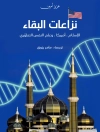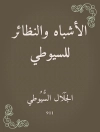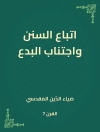Edwin Arnold’s ‘Collected Works On Buddhism and Hinduism’ presents a remarkable examination of two of the world’s oldest religions through a lens that is both accessible and deeply scholarly. The compilation covers a wide array of topics, from philosophical underpinnings to rituals and cultural implications, intertwining poetic elements with analytical rigor. Arnold’s literary style marries elegant prose with thoughtful insights, reflecting the Victorian fascination with eastern spirituality while striving to demystify these complex faiths for Western audiences. This work stands as a pivotal bridge during a time when colonial contexts both enriched and complicated the understanding of diverse cultural practices. Arnold, a British author and journalist, was notably influenced by his travels to India and interactions with local intellectuals and spiritual leaders. His deep respect for Eastern philosophy, as well as his commitment to education and social reform, permeates this collection. As a pioneer in promoting Buddhist and Hindu ethics in the West, Arnold endeavored to highlight the universal values found in these traditions, making them relevant to contemporary society. This collection is highly recommended for scholars, students of religious studies, and general readers alike who seek a nuanced perspective on Buddhism and Hinduism. Arnold’s work not only enriches the understanding of these religions but also invites readers to explore the rich tapestry of human belief systems.
Об авторе
Sir Edwin Arnold (1832–1904) was an English poet and journalist, who is most renowned for his contribution to literature that bridges Western and Eastern spiritual thought. His scholarly pursuit of Eastern philosophies and religions culminated in several significant works, most notably ‘The Light of Asia’ which offers a narrative of the life and teachings of the Buddha in a rich poetic form that captivated Victorian readers. In his ‘Collected Works on Buddhism and Hinduism, ‘ Arnold presents comprehensive insights into these ancient religions, showcasing his deep understanding and respect for Asian cultures. Arnold’s literary style often merged storytelling with scholarly exposition, which allowed Western audiences an accessible passage to the philosophies and narratives of India. His works not only reflect his poetic prowess but also his humanitarian outlook, endorsing the commonalities among the world’s religions and the universal pursuit of spiritual truth. Arnold’s dedication to intercultural appreciation and religious harmony is encapsulated in his extensive body of work, highlighting his position as a significant figure in the cross-cultural literary exchange of the 19th century.












